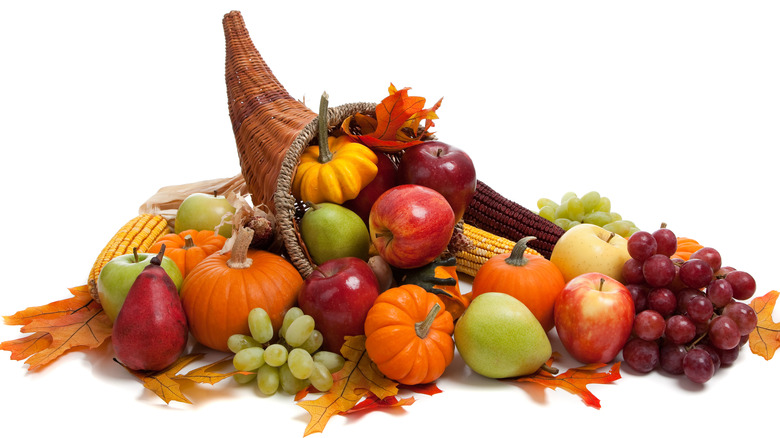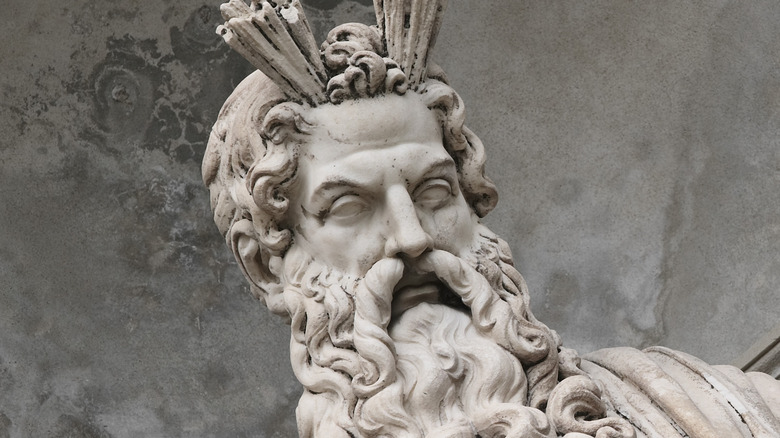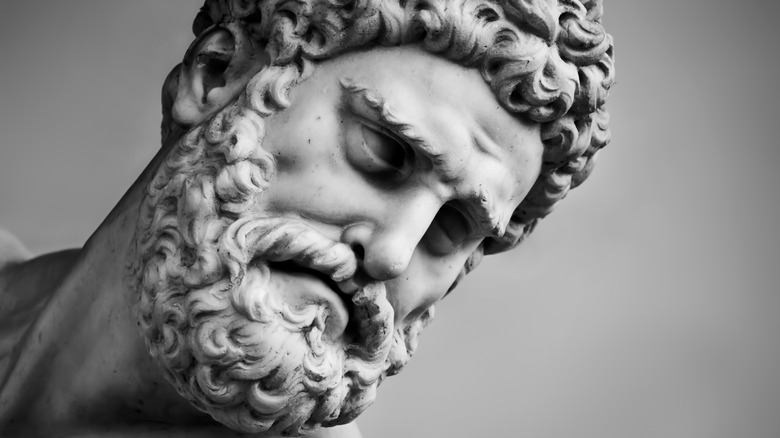The Greek Myth Of The Cornucopia Explained
Holiday traditions are some of the most enduring and warmly welcomed vestiges of years past. As Thanksgiving rapidly approaches, people are scrambling to assemble the necessary adornments and accoutrements that are sure to guarantee a festive and plentiful feast for as many of our loved ones we can fit at the table. Of course, there are all those makings of the feast — the stuffing, the cranberry sauce, maybe that timeless tradition where everyone seated shares something that they're grateful for — and of course, the illustrious and regal-looking cornucopia.
However, a second glance at the horn-shaped wicker capsule that's stuffed to the brim with apples, gourds, leaves, and all things awesomely autumn might leave you in a state of befuddlement, and you might find yourself asking, "What the heck is that thing?" Like many other holiday traditions, the cornucopia has primordial ties to the ancient world. According to ThoughtCo., this particular item can be traced all the way back to Greek mythology.
We must protect Zeus!
There are a couple of different theories explaining the origins of the cornucopia, and they both share a common denominator: the Greek god Zeus. According to at least one legend, the infant Zeus was carried off to shelter on the orders of his mother to keep her husband Cronus from devouring him. He was left with Amalthea, a goat who swore to keep the infant god safe. According to ThoughtCo., Amalthea is said to have removed her own horn and used it as a cup to feed Zeus with.
Details of the Greek legend vary. Some say that Zeus accidentally broke the horn off of his overseer himself. In any case, Amalthea's horn is said to have had extravagant powers and became a symbol of eternal nourishment among Greek theologians of centuries past. By means of rewarding Amalthea, Zeus granted her a place among the tapestry of stars and she became the constellation Capricorn, as Gourmet Gift Baskets reports.
The mighty Hercules vs. Achelous
Another Greek legend regarding the cornucopia is associated with Zeus' son Hercules. (Fortunately, the threat of cannibalism has nothing to do with this version of the tale). The Smithsonian American Art Museum reports that Achelous was a malevolent beast and a river god who would transform from a serpent into a raging bull, given the season. When in bull form, he'd rip through the earth with his massive horns and carve new tributaries of water into the landscape.
One day, Hercules found himself face-to-face with Achelous and a harrowing showdown ensued. Hercules bested the creature by snapping off one of its horns at the hilt, the horn that would in turn signify perpetual nourishment and bountiful harvest throughout the ages (per Smithsonian American Art Museum).
According to Gourmet Gift Baskets, the word cornucopia itself is actually a Latin term that means "horn of plenty." As a symbol of abundance of food and prosperity, the cornucopia has become a Thanksgiving centerpiece in American culture.


